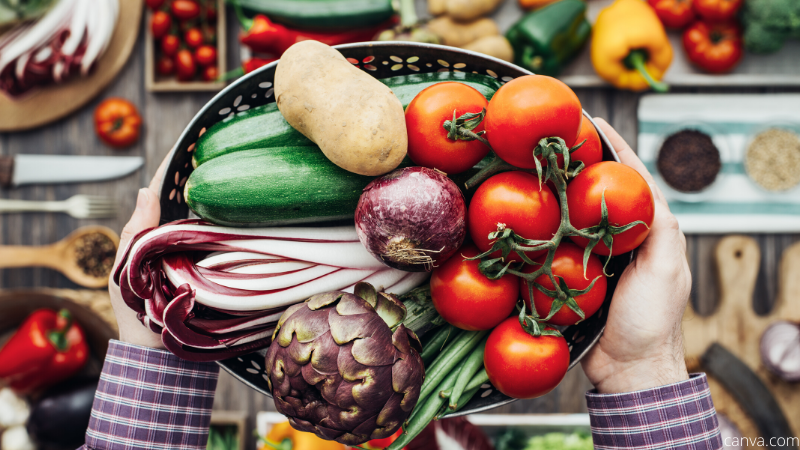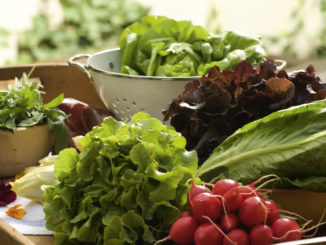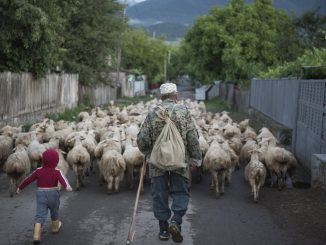The transition towards a sustainable food system that ensures access and availability to healthy and appropriate food while not harming ecosystems is now widely recognised as one of the most significant challenges facing the planet. Knowledge is a key driver of such a transition. However, what is the knowledge base that will support new structures, new practices and new behaviours? The 5th SCAR Foresight Exercise Expert Group launched in 2019, to explore research needs related to a safe and just transition, with the aim of providing a reference frame for national research strategies, EU-level partnerships and joint programming initiatives.
By Gianluca Brunori – chair of the SCAR V foresight experts’ group [1]
A just and sustainable food system
The number of scholars claiming that the urgency of food system transformation is now irrefutable is growing. Such claims do not stray far from the task of the Standing Committee on Agricultural Research’s (SCAR) (2) set up by the European Commission. The 5th SCAR Foresight Exercise Expert Group launched in 2019, to explore research needs related to a safe and just transition, with the aim of providing a reference frame for national research strategies, EU-level partnerships and joint programming initiatives.
The transition towards a sustainable food system that ensures access and availability to healthy and appropriate food while not harming ecosystems is now widely recognised as one of the most significant challenges facing the planet. Knowledge is a key driver of such a transition. However, what is the knowledge base that will support new structures, new practices and new behaviours?
This was the guiding question addressed by the EU Standing Committee on Agricultural Research (SCAR) –aiming at aligning Member States’ research policies with the EU research policy. In this article, we highlight the outcomes and conclusions of the foresight process. We highlight three possible transition pathways and reflect on related implications for research policy. These pathways can advance, in a systemic way, the practices, ideas and drivers for transitioning towards a ‘safe and just operating space for food, agriculture, forestry and fisheries’.
Three pathways for transition
The Foresight team defined a qualitative process that began with an agreement around desired futures, in alignment with the Sustainable Development Goals. In a back- and forecasting exercise, different expert groups explored the conditions required for their achievement. Indicators and targets that would define the ‘safe and just operating space’ for Europe were identified as starting points and guardrails. Through workshops, expert input and deliberation, healthy and sustainable diets for all, circularity in food systems, and diversity, were selected for their transformation potential. The pathways have different entry points and key ‘battlegrounds’, which require integrated and coherent efforts by a wide range of actors. As such, the paths may constitute the basis for future research policy agenda at European and Member States levels. The narratives of the three transition pathways are further presented below.
Healthy and sustainable diets for all
The first transition relates to what we eat: everyone must have access to healthy and sustainable diets. What we eat is inextricably linked to our environmental impact. Within the agricultural sector, animal production is by far the largest source of greenhouse gas emissions, while growing staples is responsible for the majority of nitrogen and phosphors application. Changing all this will require a monumental effort, overcoming many in-built barriers of industry structure, consumer preference, social organisation – including addressing inequalities in use of resources and access to food.
Technological change – novel foods, digital innovation and artificial intelligence, bio- and genetic engineering, consumer technologies – can transform our food habits and diets. However, multi-stakeholder engagement is needed to steer these innovations. Science and technology can provide game-changing tools, but social and organisational arrangements could prove at least as important. Public policies and regulation, such as fiscal and procurement measures, will also influence our food habits and lifestyles; action by cities and local authorities will be at least as important as national efforts. The growing cities as the space to change first, and urban food strategies can provide ground-level forerunners. Lastly, improved social welfare systems are needed to ensure that access to nutritious and sustainable food is equitable, even if prices do not continue on a downward trend.
Towards a circular food economy
A circular food economy should start from agriculture, specifically, agroecology, which takes better advantage of the way different sections of the ecosystem interact. At the same time, greater access to, and knowledge of, digital technologies is needed to reduce food waste, connect with new types of customers directly, and manage all resources more efficiently. Industry must find new uses for side-streams of production, and more collaboration between enterprises will be needed. Here, research and innovation will be vital. Overcoming obstacles to change, requires the involvement of many policy areas including economy, health, biodiversity, work and wages, digitalisation, fiscal and agriculture. This calls for policy coherence and integration.
A circular food economy requires different supply chains to connect with each other, particularly at regional scale. True cost accounting through new fiscal policies would incentivise entrepreneurs to adopt circular models. High initial investment costs will need to be sustained with fiscal instruments such as access to credit, or other public support mechanisms. Lastly, better information and traceability – to know where each product comes from, and what its environmental cost is – are key levers for realising the circular economy.
Towards greater diversity
Diversity matters. It provides alternatives, and resilience in a system. Socially, diversity promotes creativity and new ideas. Diverse economies avoid too cyclical economic behaviour, in which all enterprises could rise and fall together as a consequence of external shocks and fluctuation. In food, agriculture and nature, diversity enables a varied and balanced diet, ecosystem services (e.g. biological control or pollination), and provides a form of insurance against natural or human disasters.
To become more resilient, we must actively pursue diversity. There is an urgent need for new ideas, better understanding and easy solutions to promote the ecological functioning of agricultural and food systems.
As part of this, the role of ecosystem services should be highlighted as sources of well-being for all. To enable food producers to invest in diversification of products and services, it is necessary to build more diverse supply chains and markets. Business strategies based on diversity and economies of scope need to be scaled out, and environmental policies (i.e. regulations and norms, fiscal incentives) are needed to ensure that larger food processing companies can consider compliance to new rules a credible option. Companies need to adopt new missions: adding the goals of social and environmental responsibility to existing profit objectives. This would allow biodiversity conservation policies based partly on voluntary business commitments. Finally, public spending will be required to address potential up-front costs of redundancy brought about through diversification.
Resilience and transformation
The three transitions we have identified, stress knowledge generation as a driver of resilience and transformation, as they provide the basis for innovative practices, technologies, policies. We also need tools to identify the targets we set, and how we can change them when they turn out to be the wrong ones. We need the ability to leave “traditional” or “usual” paths and try new ones that may lead to stable but resilient and reliable roads into the future. And we need the stakeholders to come on board. If managed properly, these three pathways, can lead to a safer and fairer world that is less vulnerable to catastrophe. Research and innovation can, and indeed must, point the way.
Download the 5th_SCAR_Report
Download the Factsheet-5th-SCAR-Foresight-Exercise
[1] The 5th SCAR Foresight Exercise Expert Group members:
Gianluca Brunori (Chair), Richard L. Hudson (Rapporteur), Andràs Baldí, Stefano Bisoffi, Kerstin Cuhls, Johanna Kohl, Sébastien Treyer, Lilia Ahrné, Jessica Aschemann Witzel, Fabrice De Clerck, Jessica Duncan, Henning Otte Hansen, Begoña Ruiz and Grzegorz Siebielec.
In addition, the Expert Group wishes to thank for their advice and guidance the members of the SCAR Foresight Group: Elke Saggau (Chair), Stefano Grando, Vivi Hunnicke Nielsen, Egizio Valceschini, Matthew Clarke, Cathy Plasman and, from the European Commission, Liutauras Guobys and Hans-Jörg Lutzeyer.
(2) SCAR is a body composed by currently 37 countries including the EU Member States







1 Trackback / Pingback
Comments are closed.